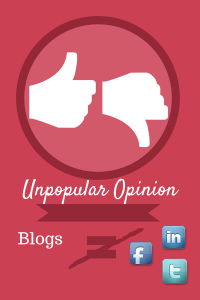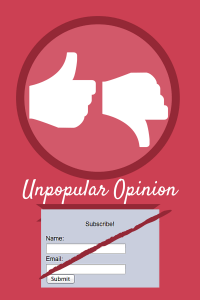 Language can be so complicated, can’t it? Especially when you’re dealing with words that are new and still evolving. The word “blog” only just came onto the scene in 1997. The first use of “social media” may have beat it by a few years, but the evidence of its earliest use is unclear. These are words that apply to technology that keeps evolving. And even as the technology itself evolves at a rapid pace, the way we use it changes even faster.
Language can be so complicated, can’t it? Especially when you’re dealing with words that are new and still evolving. The word “blog” only just came onto the scene in 1997. The first use of “social media” may have beat it by a few years, but the evidence of its earliest use is unclear. These are words that apply to technology that keeps evolving. And even as the technology itself evolves at a rapid pace, the way we use it changes even faster.
For a long time, blogging has been lumped in under the larger category of social media. I think it’s time for us to acknowledge that it no longer belongs there.
3 Reasons That Blogging Is No Longer Social Media
- Blogs increasingly resemble media properties more than they do the content on social networking websites.
Brands have spent years trying to throw everything at the wall to see what sticks when it comes to blogging. Recently, we’ve started to gain a clearer idea of just what does work and, in most cases, it’s well researched, meaty, long-form blog posts that more closely resemble the articles common to media properties than the short and pithy posts of social media.
The difference between this type of blog post and a tweet is comparable to the difference between a magazine article and a slogan – they’re completely different types of writing, with different goals, and vastly different work processes involved. The way we talk about them should reflect that.
- The most social thing about blogs – the comments – are only a prominent feature on a small portion of blogs.
If there’s one component of blogging you could use to really make a case for their being social media, it’s the comments. But how many blogs do you visit that don’t seem to have any comments at all, much less significant social interaction in the comments? Many prominent blogs have even done away with comments altogether, due to the increasing workload of sifting through comment spam. Copyblogger, a big proponent of calling blogs social media back in 2009, famously disabled the comments on their blog in 2014. They felt confident people would move the social component of interacting with their blog to social platforms like Twitter and Facebook.
So if the blog is for putting quality, article-like content out there and social networking platforms are for talking about them (and anything else you want to discuss), perhaps it’s time to acknowledge they’re serving different purposes.
- The goals of a blog are different than those of a social media presence (although they’re related).
Social media is all about interaction, awareness and promotion. Blogging is about education, thought leadership, and traffic. The specific goals and KPIs for the two mediums should differ.
Social media’s a great tool for promoting your blog posts and ideally developing the community that will visit your blog, and blogging can be an opportunity to gain the trust of readers and turn them into social media followers – and both should be helping you work toward the larger goal of building trust and gaining customers. But they each have a distinct role to play within the larger strategy of content marketing.
When you hear the term “social media,” what do you picture? For the vast majority of us, the interfaces of Facebook or Twitter will be the main images that come to mind. I’d be genuinely surprised if you told me that the image of your favorite blog popped into your head. Blogs are a type of media, and they’re often social. But they don’t fit with how most us now use and understand the term “social media.” It’s time to acknowledge that, as important as the relationship between the two mediums is, they’re not the same thing.
